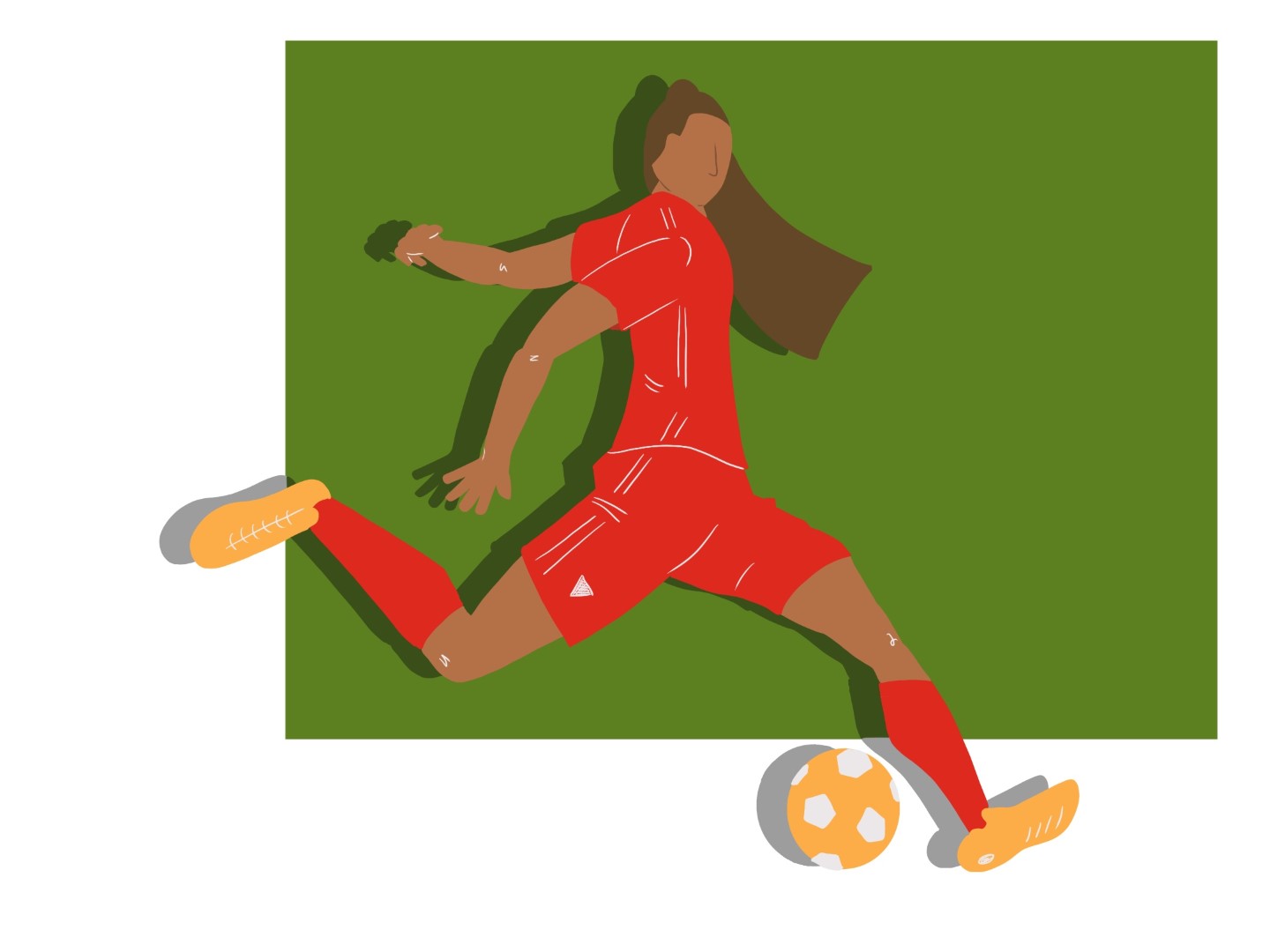
Canadian women’s soccer team wins gold over Sweden in penalties
By Brandon Yip, Senior Columnist
Canada’s struggles against the US is the perfect cliché David-and-Goliath scenario.
Interestingly, a famous expression quoted coldly by Uma Thurman’s character in the 2003 film, Kill Bill, seems apropos in describing the recent US and Canada soccer semi-final match at Tokyo 2020: “Revenge is a dish best served cold.” And it took nine years for the Canadian women’s soccer team to serve their own ice-cold platter of revenge against the US after a controversial semi-final loss at the 2012 Olympics in London.
In that contentious match, Canada was leading in the second half by a score of 3 to 2. Christine Sinclair scored all three goals and Canada looked like they were advancing to the gold medal game. Then, with some questionable officiating by the Norwegian referee, the US was later given a penalty kick after a debatable handball call against defender, Marie-Ève Nault. Abby Wambach scored for the US to send the game into extra time. Then, late in extra time, Alex Morgan scored to seal a 4 to 3 victory for the US. It was a heartbreaking loss for the Canadian side.
At the Olympics in Tokyo on August 2, Canada faced the US again in the semi-final at Kashima Stadium. The Canadians finally defeated the Americans winning by a score of 1 to 0. Canada’s goal was scored by Jessie Fleming in the 74th minute on a penalty kick striking the ball decisively into the corner of the net. The penalty was awarded to Canada after a video review determined that Canadian player Deanne Rose was fouled in the penalty area by Tierna Davidson.
Canada’s struggles against the US is the perfect cliché David-and-Goliath scenario. Canada had not defeated the US in almost 20 years. The Canadian victory over the Americans at Tokyo 2020 was only their fourth win over the US in 62 meetings.
Bev Priestman, Canadian head coach, was very proud of what the team had accomplished. “I’m so so happy to get that gold,” she told the media after the victory over Sweden. “I knew it was coming. Probably from the Brazil game onwards I knew we had it if the players turned up and they believed, which they did.”
Canadian veteran player, Christine Sinclair, has been a great leader and ambassador for the women’s game. Notably, she is the world’s all-time leader for international goals with 187, more than any player (man or woman). Sinclair said defeating the Americans was very satisfying telling the media after the game: “We finally won. For those of us who were part of the 2012 game, it was nice to get a little revenge in an Olympic semifinal.”
The path was not easy for Canada at Tokyo 2020. They had to endure two nail-biting and anxiety-filled penalty shootouts during the knockout stage. The first was against Brazil in the quarterfinal, and the second was against Sweden in the gold medal match. Vancouver’s Julia Grosso (currently a midfielder at the University of Texas) scored the winning goal in penalties to send Canada and the rest of the country into euphoria.
Dale Mitchell, a former Canadian striker and member of the Canadian men’s national team, was also pleased with Canada’s triumph in Tokyo. “Fantastic achievement by the women’s team,” he said in an interview with the Other Press. “I don’t know how many gold medals we have in team sports in our history other than from hockey, but I don’t recall too many. All of the players and staff have done themselves and the country proud.”
Mitchell says taking penalties is never easy; the pressure of the situation and moment can be very overwhelming. “The bigger the occasion the more you feel the pressure to score,” Mitchell said. “You don’t want to let the team down and there is an expectation with penalties that the taker should score. It’s about confidence, pick your spot, and put it there. I always found that changing your mind in the process is where you become hesitant and get [into] trouble.”
Prior to Canada’s victory over Sweden, Canada had won bronze at the 2012 and 2016 Olympics. Unfortunately, at the FIFA Women’s World Cup, the Canadians were unable to qualify for the round of 16 at the 2019 World Cup in France. Canada’s best result was a fourth-place finish in 2003 (tournament held in the US). Canada now has its sights on the next World Cup, being held in 2023—which will be c0-hosted by Australia and New Zealand.

